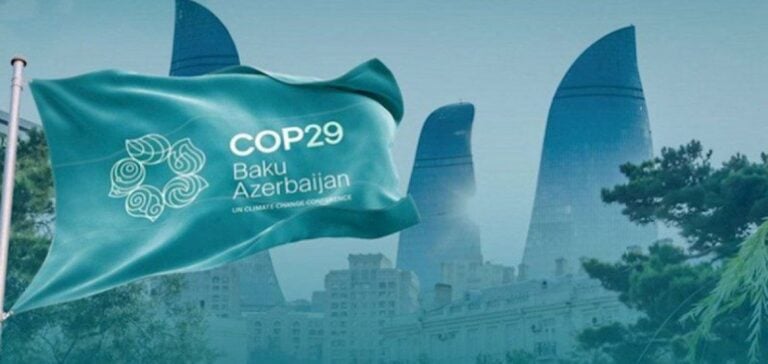The Conference of the Parties on Climate, or COP29, hosted this year by Azerbaijan, has sparked heated debates over the role of fossil fuel actors. With nearly 1,800 representatives identified among participants, their influence on climate discussions is under scrutiny by NGOs and activists.
At this conference, dozens of energy-related events were held from the first day. Among the speakers were energy ministers from Kazakhstan and the United States, the CEO of TotalEnergies, and carbon market entrepreneurs. All positioned themselves as essential players in the energy transition.
Lobbying Accusations: A Barrier to Climate Progress?
Criticism is mounting against COP29, particularly from non-governmental organizations (NGOs) that denounce the growing influence of lobbying. A symbolic installation of a giant snake at the conference entrance underscored this mistrust. Activists like Makoma Lekalakala from EarthLife are calling for an immediate end to what they call “energy colonialism.”
Other influential voices, such as former U.S. Vice President Al Gore, expressed concerns. He pointed out Azerbaijan’s greenhouse gas emissions and criticized the control of negotiations by fossil fuel companies.
A Debate Between Necessity and Transition
Patrick Pouyanné, CEO of TotalEnergies, acknowledged that the fossil fuel industry is “part of the problem” while emphasizing his company’s continuous efforts to reduce its environmental impact. The company collaborates with Socar, Azerbaijan’s national oil company, to exploit a gas field in the Caspian Sea, illustrating the dual role of oil majors: both accused of slowing down the climate transition and considered indispensable partners.
The conference also featured discussions on climate financing. Negotiators are struggling to agree on the modalities to mobilize $1 trillion annually for developing countries. A draft text is awaited to clarify the divergent positions.
Perspectives for Future COPs
Despite criticism, notable progress has been made in previous editions, such as COP28’s agreement to gradually phase out fossil fuels. However, activists fear that the massive presence of lobbyists will slow this progress.
As ministers join negotiations next week, the challenge remains: reconciling the demands of energy transition with the economic interests of major energy powers. The outcomes of COP29 will determine whether this summit marks a decisive turning point or another step in a process deemed “too slow” by many participants.






















